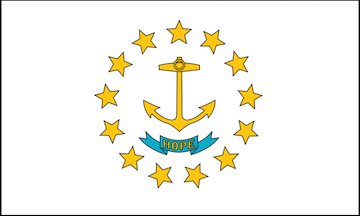50 State Undue Influence Project: Rhode Island Undue Influence Expert Definitions
In an effort to provide a better understanding for what undue influence expert psychologists look for when forming opinions about whether undue influence occurred in the execution of a will, trust, beneficiary designation, or other contractual document, I am highlighting the statutes, case law, and jury instructions specific to all 50 states. Each will be in its own blog post. Thirty-ninth up, Rhode Island.
Branson v. Louttit (2019):
Undue influence is the substitution of the will of the dominant party for the free will and choice of the subservient party (citing Bettez v. Bettez, 114 A.3d 82, 85 (R.I. 2015) and In re Estate of Picillo, 99 A.3d 975, 982 (R.I. 2014)).
When determining what constitutes undue influence, a trial justice ordinarily examines the totality of the circumstances, including the relationship between the parties, the physical and mental condition of the subservient party, the opportunity and disposition of the person wielding influence, and his or her acts and declarations (citing In re Estate of Picillo).
Ordinarily, the question of whether undue influence exists is a fact-intensive inquiry (citing In re Estate of Picillo).
In re Estate of Picillo, 99 A.3d 975, 982 (R.I. 2014):
Not all influence is undue. Undue influence is influence that is the substitution of the will of a third party for the free will and choice of the testator (citing Caranci v. Howard, 708 A.2d 1321, 1324 (R.I. 1998)).
Murphy v. O’Neill, 454 A.2d 248, 250 (R.I. 1983):
The party contesting the will must prove undue influence by a preponderance of the evidence.
Apollonio v. Kenyon, 101 R.I. 578, 593-94, 225 A.2d 778, 787 (1967):
Because the perpetrator of such covert coercion generally applies the forbidden pressure in secret, one seeking to set aside such a will is often unable to produce direct evidence of the undue influence to the factfinder but rather must rely on circumstantial evidence.
Evidence that the person accused of unduly influencing the testator enjoys a relationship of trust and confidence with the testator and was instrumental in the testator’s execution of the contested will may at least give rise to the drawing of a permissible inference that undue influence was exerted upon the testator.
Campbell v. Rhode Island Hospital Trust Co., 125 A. 220, 221 (R.I. 1924):
The party seeking to avoid a will that he or she believes is due to undue influence must show more than mere evidence of an opportunity to exert such influence unaccompanied by evidence that the impermissible pressure was actually asserted.
Brousseau v. Messier, 79 R.I. 106, 110, 84 A.2d 608, 610 (1951):
The evidence of influence whether direct or circumstantial must be connected with and relevant to the time that the challenged will was executed.
